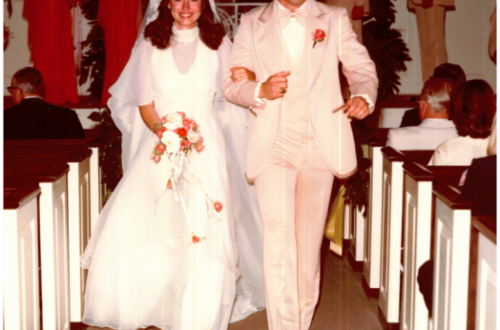Women’s History Month: Acsah, a Lesser-Known Woman of the Bible
And Caleb said, “I will give my daughter Acsah in marriage to the man who attacks and captures Kiriath Sepher” (Judges 1:12).
Back when I was in high school, someone asked what I thought of arranged marriages. I pictured my parents choosing me a guy in a suit with nerd hair and geek glasses held together by a Band-aid. More interested in football players and rock musicians wearing faded jeans, I shuddered at the thought.
I ended up marrying a guy who paved roads for a living and wore cool jeans. Funny, though. I actually didn’t mind so much when he went on to wear suits and work for a law firm. In an interesting twist, both my parents and I ended up happy with my choice.
And as it turns out, parents aren’t always as clueless as teens think. In fact, studies tell us that couples in arranged marriages are often happier than those who choose their own mates.
So should we arrange our kids’ marriages? No. That’s definitely not my point. (For one thing, I wouldn’t want a grown daughter to call and blame me with, “Why’d you make me marry this guy?”)
I say all this only to emphasize that we have to be careful, very careful, about reading our own cultural values into the biblical text. Otherwise, we can miss the main idea in interpretation.
Case in point: In the Book of Judges we have Caleb, Moses’ successor—one of a select group of spies who actually trusted God despite the circumstances. But suddenly we find our hero Caleb offering his daughter in marriage as a prize.
What? What’s wrong with him? Does he think she’s property or something?
Well, ahem, actually, yes—kind of.
In Caleb’s day men (and in many parts of the world today) people often did (and do) consider women below cattle and sheep as their possessions. But we have to remember that the culture and practices were not inspired. Only God’s words are inspired.
Still, Caleb isn’t offering his daughter to make money that would benefit only himself. Or as some sort of power trip. In the past parents have done each of these. But Caleb was seeking to award a man who proved himself valiant in battle (important when there’s no police force), and more importantly one who had the courage and faith to obey God’s command to conquer. Wouldn’t such a man make a good son-in-law?
Yes, we’ve come a long way, baby. I am glad I got to marry the love of my life. Still, when we read Judges, we need to find the author’s meaning in Acsah’s story—meaning that goes beyond “Aren’t you glad times have changed? “and “Notice how women got treated in Bible times.”
The narrative about Acsah, Caleb’s daughter, serves as a “first bookend” introducing the Book of Judges. Acsah rides a donkey (the equivalent to a BMW) to find her father and ask for prime real estate with access to water, which he grants. The other bookend sits at the end of Judges. It’s the story of a gang-raped woman who leaves her man to return to her father and gets carried home dead on a donkey—before her man cuts her into twelve pieces and mails her to twelve cities. Sheesh.
Acsah’s narrative serves as the prototype “good” to contrast with the “evil” that shows how far life has degenerated. Whether we read the Book of Judges as a chronological narrative or as a geographical one, we see the enormous contrast between beginning and ending: beginning, good leadership in the land; ending, no leadership in the land. Beginning, good circumstances; end, horrific circumstances.
Yes, we’re glad cultural practices have improved for many of us. But Acsah’s story tells us much more. In it we see a part of a whole showing us the danger to the powerless when “everybody does what seems right in their own eyes” (21:25).
As we lead, then, Acsah’s story serves as a reminder to do so in the power of the Spirit. That means we commit to trust and obey, doing only what is right in God’s eyes. We must never do what merely “seems right,” leaning on our own understanding. Rather, in all our ways we must acknowledge Him, and He will direct our paths.
Adapted from Java with the Judges.




